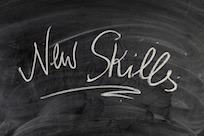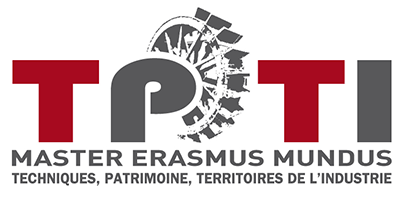Skills

The contributions of skills and complementary knowledge offered by each of the partners offers a global approach, allowing work and research for the project from every dimension, in particular in terms of impact. To meet these objectives: to train professionals of excellence in the engineering of industrial and technical heritage by giving them the ability to appraise historical technical environments, knowledge of technical processes and their economic, ecological and societal impact; analysis of heritage contexts, is the intention. Included is a mastery of the various phases of heritage: memorization, conservation safeguarding, management, valorization, and application of the know-how and technical know-how of crafts and industry, including tools, buildings and machines, production areas and landscapes.
Training management have defined a reference system of general skills. To validate their studies, a student must know:
the fundamental concepts of historical-patrimonial construction by concretely taking in the measure of : history / memory / heritage distinction;
application of these concepts to the variety of themes concerned : tools, languages, cultures, buildings, infrastructures, landscapes, districts and territories;
acquisition of the knowledge and skills necessary for the implementation of every phase of heritage management: definition, identification, storage, conservation, protection, valorisation, offering social, economic and environmental relevance;
development of a critical position as well as gaining autonomy in theoretical and practical approaches.
In addition, they ensure that students learn other transferrable skills: multi-culturality, multi-lingualism and multi-sectoriality. This approach is in response to a didactic deficit in this field of knowledge because of the narrow historic approach to this discipline (history of art, cultural management, etc.), at both an academic or professional level, which no longer fits with the reality of the labor market. In addition to creating this programming, the trans-disciplinarity training that is offered constitutes a major contribution to co-accreditation and mobility of this international degree.
General knowledge and skills expected at the end of the training
ability to communicate and describe the history of thought, both scientific and technical knowledge; the history of scientific, technical and industrial culture in France and Europe;
understanding of the historical knowledge of scientific and technical institutions relating to policy and legislation in France and Europe;
documentation skills, including a knowledge of archival holdings : written and oral, iconography, cinematography, television and radio, involving information retrieval and a mastery of databases;
mastery of historical bibliographic reflection, on an international level, with a focus on scientific and technical documents;
ability to work collectively on a multi-disciplinary level : using socio-anthropology, archeology, hard science, and multi-sectoral level :(training on how to develop public-private partnerships, working with local authorities, including an ability to cross-archive work and fieldwork;
ability to produce a heritage archive in various phases : storage, conservation-protection, valorisation-management, all in the field of scientific, technical and industrial heritage;
popularize and enhance scientific, technical and industrial culture within a region.
Specific knowledge and skills expected at the end of the training
skills in technical history : technical statements, operation chains, technical systems, innovation and the transfer of technology, operating through smart systems, how heritage connects with technical cultures, the history of innovation and design regimes;
skills in the history of science : institutions, scientific cultures and practices, the history of scientific policies, science education and forms of popularization as well as sciences and societies;
skills connected with science heritage: history surrounding scientific instruments and equipment, inventory, museography, conservation, valorization, interpretation and management of scientific heritage;
specific skills in technical heritage and management of technical paleostructures: socio-anthropology of techniques, public policy surrounding techno-science, computer science and knowledge management, cartography and the inventory of paleo-technical structures and findings;
specific skills in conservation, valorization and didactics around technical heritage and industry: industrial archeology, inventory, museums, conservation, valorization, interpretation and management of industrial heritage (archives, factories, equipment, products, social infrastructures and communications).
As the history of techniques takes a historic approach to objects created by humans in a context defined to solve a set of material problems, the skills to acquire the development of research or applications are as follows:
Notions: technical systems, complexes, technical sectors, operation chains, thought and knowledge about technical cultures and the regimes of operationsincluding: practical / technical / forms of technology, transfer of information, hybridization, innovation and invention.
Methodological approaches: the use of a multidisciplinarity approach, the treatment of mapping and planning out the work and an introduction to different methods of analysis relating to cultural heritage (archeology, metallography) as well as data processing (including the GIS system and web databases).
Know-how: discerning and being able to analyze different forms of technical statements (both texts and images), defining technical objects and relating them to a problematic, to exlore research archives through fieldwork and experimentation, the ability to understand and interpret different mechanisms of technical transfers, establishing models of analysis, formulation and validatation of a hypotheses by creating links between other historic fields (history of the related economy and social history) connecting these with complementary disciplines (archeology of techniques, industrial archeology, archaeometallurgy).
As the history of industry is part of cultural heritage, and contributing to the documentation of society as a whole including material, architectural, technical and infra-structural evidence of activities connected with industry, the domains and subjects which are concerned with interpretation, conservation and communications around cultural heritage continues to grow and become more diversified. The skills to acquire the management and valorization of industrial cultural heritage are:
Notions: defining industrial heritage in relation to different historical fields of study (History of Industry, History of Architecture, History of Technology and Engineering, History of Landscape and History of Art) including valuation through architectural and functional recovery projects, museography, museology, management of material, economic impacts and human resources associated with heritage, communication activities including cultural and tourism promotions.
Methodological approach: Understanding the paths between archeology and industrial heritage, both material and immaterial, as well as the segmentation of industrial heritage, is part of the approach. These methodologies are connected with the inventory of techniques, valuation of technical capabilities as well as industrial and landscape heritage. This includes knowing how to identify and prioritize the elements of industrial heritage within a territory in order to interpret, evaluate and transmit knowledge through communication projects and didactics which are effective.
Know-how: Identifying and prioritizing elements of industry heritage in a territory in order to evaluate and transmit these elements through effective communication and didactic projects is part of this approach. Understanding the framework of positive and negative experiences within the conservation and enhancement of heritage includes the realization of recognition and future development of industrial activities.
Cultural heritage is a discipline which combines the archeology of buildings, the history of techniques as well as the economic, social and cultural analysis of heritage and geo-history relating to human activities. The skills to acquire and develop research leading to or building applications in this area are:
Notions: tangible and intangible heritage, monuments and forms, the relative scale of a heritage object, territorialization, hierarchy of networks, urbanisation, industrial heritage wastelands including their reuse or renovation.
Methodological approaches: This would include landscape studies, field inventories, the collections of documents (writings, iconography, objects), databases, practices using specific tools, fieldwork and building surveys, monument studies and image analysis including drawings and tables, maps and plans, photographic collections. There may also be analysis using oral testimonies and trades gestures.
Know-how: It is relevant to create a history of landscapes and understand the frame of reference for museums which are connected with these landscapes, buildings and objects. This also attempts to distinguish historical and cultural values within the framework of these studies. This includes how different tools provided by different disciplines help to define and problem solve, including interpretations and reconstructions of historic situations. In addition, there is work done on the valuation of policies and putting heritage in an ethical framework as it relates to cultural marketing.
Transferrable skills
Transferrable skills are a key factor for employability and the best guarantee for professional growth. They practice:
in the intellectual realm, a deep research information, problem solving, exercising critical judgment and critical thinking;
in the methodological realm: to give oneself effective working methods to exploit information and communication technologies;
in the personal and social realm: apply one's potential through collaboration and cooperation;
in the communication realm: communicate effectively and appropriately.
This Master’s Degree will ensure that students will expand their communication capacities (using tools such as powerpoint and encouragement to working with local experts) including work within the tutored project. In the methodological realm, applied training in computer science and history will be available for the tutored project. In the intellectual realm, producing original work is suported by persevering in the practice of the trilogy proper to action-research: problems coming from the field, acquisition and mobilization of a library and aptitude at proposing innovative and reliable solutions.
In addition, the inter-cultural experience from this Master’s Degree, more and more sought after by companies, including the training of executives to be able to lead and synthsise findings, will support students to have effective interactions in the future when working in complex cultural environments. Students receive immediate immersion in a multicultural experience through the integration of the international branch of the TPTI course as they receive non-European students. Added to this is the collective tutorial project, around which future career paths may be structured.





